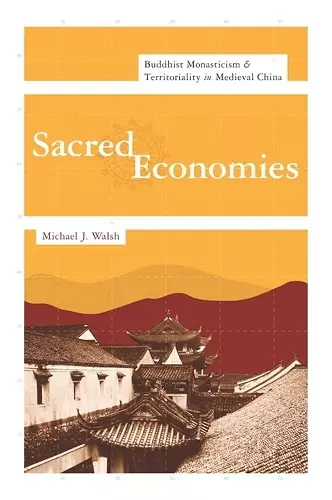Sacred Economies
Buddhist Monasticism and Territoriality in Medieval China
Format:Hardback
Publisher:Columbia University Press
Published:13th Apr '10
Currently unavailable, and unfortunately no date known when it will be back

Sacred Economies has a descriptive side and a theoretical side, and the two work together beautifully. The descriptive side gives us new data from gazetteers and a wide range of miscellaneous sources that includes the land holdings and economic enterprises of Buddhist temples. The theoretical side hinges on the question of merit, an invisible quantum utilized in the exchange of wealth and karma (or even salvation). -- Eric Reinders, Emory University, author of Borrowed Gods and Foreign Bodies: Christian Missionaries Imagine Chinese Religion
Buddhist monasteries in medieval China employed a variety of practices to ensure their ascendancy and survival. Most successful was the exchange of material goods for salvation, as in the donation of land, which allowed monks to spread their teachings throughout China. By investigating a variety of socioeconomic spaces produced and perpetuated by Chinese monasteries, Michael J. Walsh reveals the "sacred economies" that shaped early Buddhism and its relationship with consumption and salvation. Centering his study on Tiantong, a Buddhist monastery that has thrived for close to seventeen centuries in southeast China, Walsh follows three main topics: the spaces monks produced, within and around which a community could pursue a meaningful existence; the social and economic avenues through which monasteries provided diverse sacred resources and secured the primacy of Buddhist teachings within an agrarian culture; and the nature of "transactive" participation within monastic spaces, which later became a fundamental component of a broader Chinese religiosity. Unpacking these sacred economies and repositioning them within the history of religion in China, Walsh encourages a different approach to the study of Chinese religion, emphasizing the critical link between religious exchange and the production of material culture.
The book is a good read. -- Robert Tollison EH Net Walsh has made a valuable contribution to the field of Chinese Buddhism. -- Ryan Richard Overbey Religious Studies Review
ISBN: 9780231148320
Dimensions: unknown
Weight: unknown
256 pages